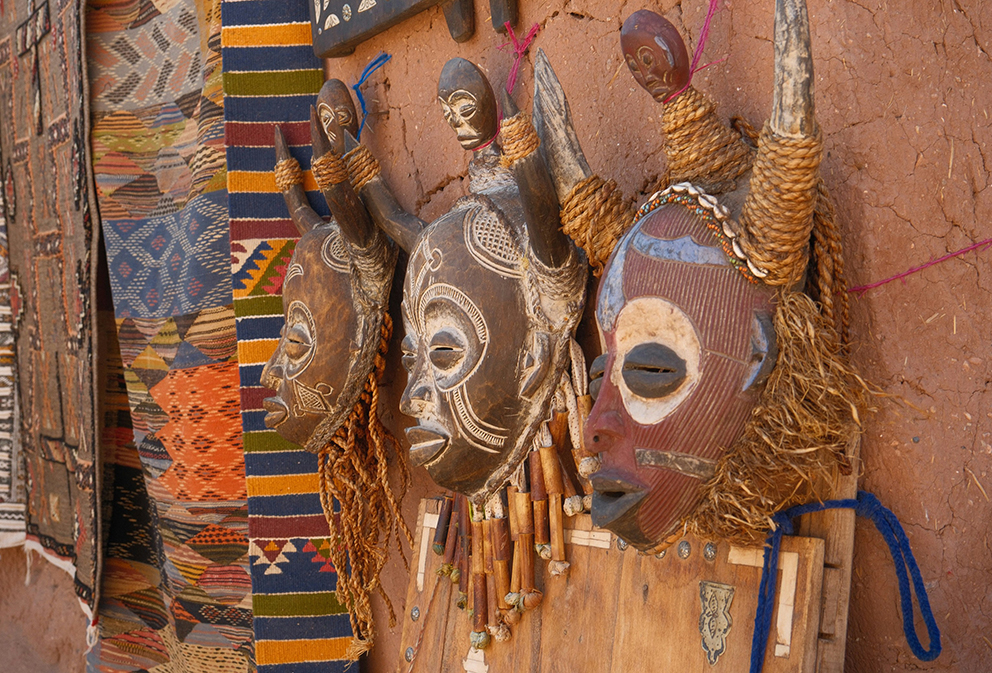Renewing your mind (Part 5)
The lure of Idolatry - a meditation on true worship
To the onlooker, idolatry is very much part of the traditional African world, with the spirits of ancestors, spirit-beings and various deities recognised and included in festivals and rituals. This would be disputed by many from a traditional background, seeing spirits as merely mediators for access to the ‘Supreme Being’, who is their ultimate object of worship, but who is way beyond them and completely out of reach.

Likewise, to the onlooker, idolatry is a thing of the past in modern societies. There is no recognition of spiritual powers, and most consider the visible world to be all that really exists. Yet a fascination with the unseen still exists, along with a yearning for identity and meaning from beyond ourselves.
Perhaps a biblical view of idolatry is required for us to see what is going on.
The world of the bible is very like the traditional world of the African. Spiritual beings are real and powerful. They are either good or evil, and can influence the world and people around us. The key question about our interaction with these powers that arises from any serious study of the bible is around the nature of worship.
Worship, according to the bible story, is an inevitable part of the human make up. We were made to worship, although initially, this didn’t look like we imagine. In the garden, Adam and Eve delighted in being with God. There was a bond of love between them, and a sense of trust in the character and faithfulness of God that led to joyful submission and obedience. This is our first glimpse into what it means to worship.
Later in the story, Adam and Eve are confronted by a serpent like character, who proceeds to tell them a different story about the God that they worshipped. This was a story of God keeping what was good away from Adam and Eve, of him withholding and refusing to let them flourish. The choice they made was once again out of trust and submission, but this time it was to a created being, rather than the creator. And this choice brought disaster.
In the opening chapters of Romans, Paul wants to set the scene for the need of the gospel to be preached around the world. In chapter 1, he lists a downward spiral of humanity, going from knowing God (Rom 1:21) to being ‘filled with every kind of wickedness, evil, greed and depravity’ (Rom 1:29).
The first step in that downward spiral? ‘They neither glorified him as God nor gave thanks to him’ (Rom 1:21). Worship was the problem. Paul summarises his thoughts in Rom 1:25 ‘They exchanged the truth of God for a lie, and worshipped and served created things rather than the Creator’.

Paul explains the problem of the human condition in terms of worship. Humans desire to put themselves in the place of God and to define what is right and wrong for themselves. To do this, they put their trust in something created, rather than the creator.
This is the first step in the destruction of the world through sin. Sin is not the root issue, but rather the fruit of the refusal to worship God, and instead worship created things. All sin comes out of placing trust in things that are not God. In considering the story of Adam and Eve, we might say, their rebellion was not the root issue, but the fruit of trusting in and submitting to a created being rather than the creator.
When placed in these terms, we can see that idolatry is far more than simply bowing to a statue or sacrificing an animal in a ritual. Idolatry is putting yourself in the place of God, and placing your hope and trust in anything apart from God in order to achieve your aims.
Both western and African worldviews share a goal of the good life, however that might be expressed. Ultimately, each will use whatever power is at their disposal to gain for themselves and their family what is needed to fulfil their personal vision of the best that life has to offer. The Westerner often pursues financial power as the pathway to their goals of comfort, intimacy or experience. The traditional African often pursues the power of the spiritual realm to achieve their goals of harmony, community or status.
Yet both of these pursuits are idolatrous at heart. They put their trust in created things rather than the creator, and live in submission to their authority, rather than to God. Even the concept of a ‘good life’ lived outside of a relationship with God is idolatry.
The biblical call is to put God at the centre of your story, rather than yourself or your family clan as the centre. This of course requires something of a death. A death to our own wisdom, a death to our understanding of good and bad, to our own vision of the good life. In all true worship, there is an offering, a sacrifice. It’s not easy, and it’s not cheap. In fact, it will cost you everything. Jesus calls people to follow him, to lose their life for him so that they can truly find life. That is what you were made for.
In view of God’s mercy, offer your bodies as living sacrifices, holy and pleasing to the Lord, which is your spiritual worship. (Rom 12:1)
Questions for reflection
• What is your idea of ‘the good life’?
• What powers are you using to try to achieve this?
• Consider ‘sin is the fruit of idolatry’. What implications does that have on how you deal with sin in yourself or others?
• What sacrifices are you currently making in your worship of God?